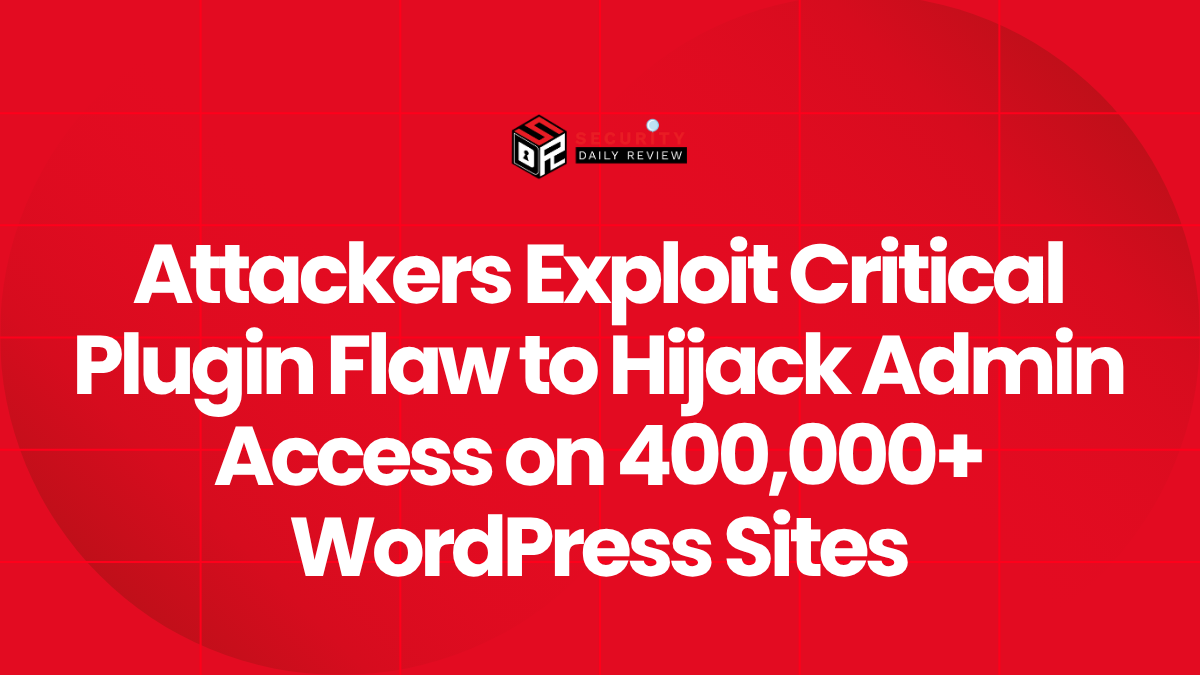A zero-day vulnerability in the widely used Post SMTP plugin for WordPress has come under active exploitation. With more than 400,000 installations worldwide, the plugin is a critical component in many WordPress-based websites’ email delivery systems. The flaw, recently disclosed without a fix initially in place, is now being actively targeted by threat actors aiming to hijack administrator accounts and fully compromise vulnerable sites.
Critical Flaw Allows Admin Account Takeover on WordPress Sites
Security researchers warn that active exploitation is already underway , with attackers launching automated probes to identify and compromise WordPress sites running a vulnerable version of the Post SMTP plugin. Once inside, the attackers can create unauthorized admin-level accounts, allowing them to manipulate site content, install malware, or exfiltrate sensitive information.
Vulnerability Originated in OAuth Authentication Flow
The vulnerable component resides within the plugin’s OAuth 2.0 authentication process. Post SMTP allows site administrators to connect their WordPress sites to email gateway services like Gmail or Microsoft 365 via APIs. To facilitate this, the plugin implements a callback mechanism to handle OAuth tokens. However, the plugin’s implementation failed to properly restrict access to the authentication endpoint.
This misconfiguration enables attackers to:
- Send a crafted request to the OAuth authentication endpoint
- Bypass intended access controls
- Register malicious admin accounts directly on the site
Because WordPress’s REST API allows user registration in some configurations, attackers can abuse the plugin’s middleware to escalate newly created accounts to administrative privileges.
Active Exploitation Highlights Urgency of Threat
WordPress security firms have detected real-world exploitation attempts against this vulnerability beginning shortly after the flaw was disclosed. Scripts scanning for installations of the Post SMTP plugin have been observed across multiple threat intelligence platforms, indicating the rapid weaponization of this flaw in opportunistic mass exploitation campaigns.
Indicators of Compromise Include Unauthorized Admin Accounts
Security professionals monitoring affected platforms suggest checking for unexpected admin-level accounts and suspicious login activity—especially if OAuth-based mail integrations have recently failed or changed.
Some signs of compromise include:
- Creation of unusual WordPress admin accounts (e.g., with fabricated email addresses)
- Modified plugin settings or SMTP credentials
- Tampered site configuration or installed backdoors
WordPress administrators using the Post SMTP plugin should examine their user account lists and logs for any such anomalies.
Patch Issued After Initial Zero-Day Window
The plugin’s maintainers released a patch following public disclosure of the flaw. Affected site owners must update to Post SMTP version 2.5.9 or later to remediate the vulnerability. The security fix restricts unauthorized requests to the OAuth callback process and prevents attacker-initiated admin hijacking.
Immediate Mitigation Recommended for Unpatched Instances
Administrators unable to update immediately are urged to:
- Disable the plugin temporarily until the patch can be applied safely
- Audit all WordPress users for unknown or unauthorized admin-level accounts
- Monitor email functionality and logs for irregular OAuth activity
Failing to update exposes sites to serious risk of data loss, site defacement, or use in broader campaigns like phishing or malware hosting.
Lessons in Secure Plugin Architecture and OAuth Implementation
The Post SMTP vulnerability underlines the importance of secure plugin development, particularly when implementing authentication flows like OAuth. This case highlights how even a single misconfigured endpoint can lead to total admin compromise.
For security-conscious developers and site operators, this serves as a reminder to:
- Test all exposed endpoints rigorously, especially those involving third-party API flows
- Follow the principle of least privilege when allowing dynamic user account changes
- Stay subscribed to vulnerability disclosure feeds for plugins in use
WordPress Ecosystem Faces Growing Application Security Challenges
As WordPress continues to run over 40% of websites globally, its plugin ecosystem remains an attractive exploitation surface. Popular plugins such as Post SMTP offer critical functionality but can also introduce dangerous threat vectors if not properly secured and maintained.
Administrators must adopt proactive patching, regular auditing, and defense-in-depth strategies to secure their web environments—especially when core functionality relies on third-party components like email delivery.
With this vulnerability now actively exploited, and proof-of-concept exploit scripts in circulation, time is of the essence. WordPress users should not delay in updating or isolating vulnerable installations of the Post SMTP plugin.









